
Fiber optic indoor cabling is the backbone way for the transmission of data around the buildings which is also sometimes referred to armored indoor FO cable. These cables are usually used for the development of level subsystem deep in between the building construction. The most common types of indoor FO cables are GJFJV, GJFJZY, GJFJBV, GJFJBZY, GJFDBV and GJFDBZY. The characteristics of the indoor cables are different from the cables used for outdoor.
Indoor FO cables are very robust and rugged, an important characteristic for indoor cablings. It is ideal for demanding and harsh indoor environment such as conduits, junction boxes and patch panels. Ordinarily they comprise of the accompanying parts inside the cable, the FRP which is non-metallic fortify part, the strong compact optical fiber to increase the durability of the link structure, elevated level of tension, and the cable outer layer jacket. The most common way is to utilize LSZH or other RoHS consistent PVC materials to create a perfect cable outer jacket.
Multifiber cable holds multiple fibers that is self-sustaining sheathed. One standard configuration usually contains 12 fiber cables and can be either a loose or tight buffered. These cables are effective in carrying unrelated signals that other types of cables are unable to accomplish.
Simplex fiber optic cable is usually utilized for solely one transmission between multiple devices. It is made of a single strand of durable plastic fiber. Another use of a simplex cable would be when there is a bi-directional data signal transmission.
Duplex fiber optic cable is commonly used when there is a different duplex communication between multiple devices. This is where there are 2 different transmissions. It is made of double simplex fiber optic cable of sturdy plastic fiber. Instead of using 2 simplex cable, you can use a duplex cable for two transmissions. This is also for aesthetic and for ease of use. It will be easier to handle.
Ribbon fiber optic cable has multiple fibers that is arrange orderly together in one jacket. Is it usually consisting of up to 12 fibers in a single jacket. It is available in both single mode and multimode. Ribbon cable is quite versatile these days where it is applicable for outdoor cables as well as in premises such as cabling and connect devices within cabinets in computer data centers.
Breakout fiber optic cable consists of up to 24 fiber strands. It combines the versatility of many fibers to work with the strength of each jacketed sub-units. Application is commonly used for rugged cross-connects and fiber “backbone”.
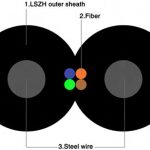
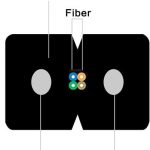
The optical fiber unit is positioned in the center. Two parallel steel wire are
placed at two sides.
Then the cable is completed with black or color LSZH outer sheath.
Fiber color starts from No. 1 Blue.
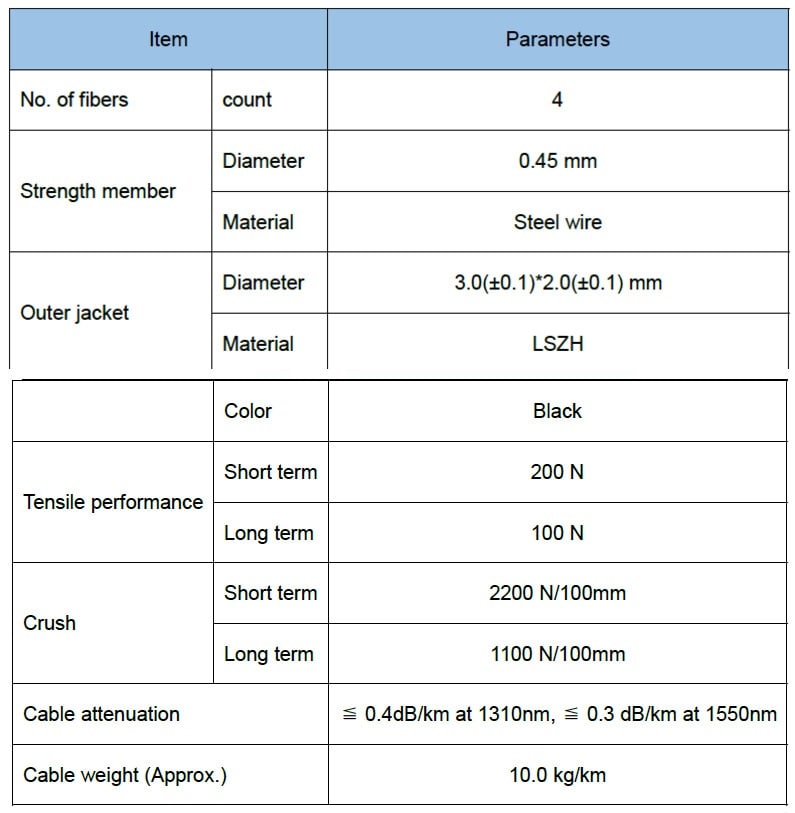
Static: 15
Dynamic: 30
Operation: – 20°C ~ +70°C
Installation: – 20°C ~ +70°C
Storage/transportation: – 20°C ~ +70°C
See more: 4-core Indoor Fiber Cable
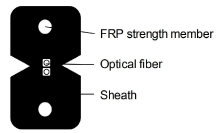
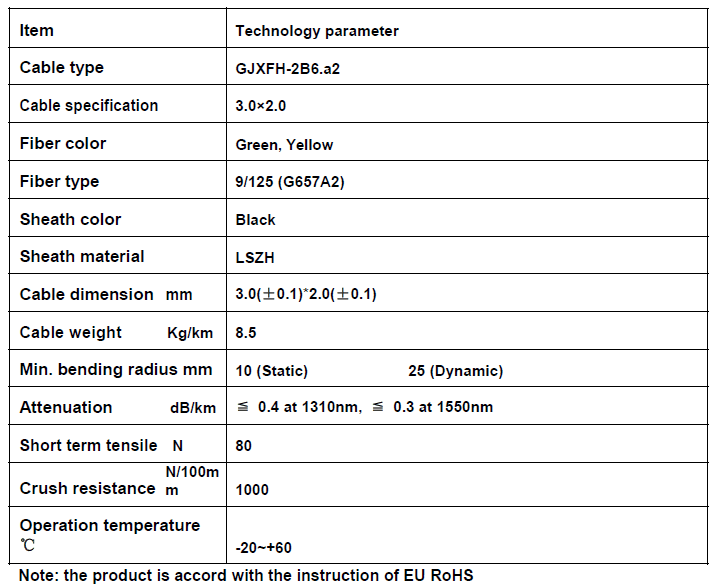
Nagasima Electronic Engineering Pte Ltd has been supplying quality fiber optic cable in Singapore, Malaysia, Australia, and China for more than 30 years. We are happy to assist you in any queries that you may have. Kindly contact us here to find out more.
See more: 2-core Indoor Fiber Cable (GJXFH-2B6.a2)
Read more: Everything you need to know more Optic Cable, Indoor Fiber Optic Installation
Related fiber optic products: SC Fiber Optic Pigtail, Fiber Optic Patch Cord, Fiber Optic Termination Panel, Fiber Optic Termination Box
Our Location
20 Woodlands Link, #08-35, Woodlands East Ind Est Singapore 738733
Tel: +65 6296 9456 Fax: +65 6298 0845
Nagasima Electronic Engineering Pte Ltd © 2016
All Rights Reserved.